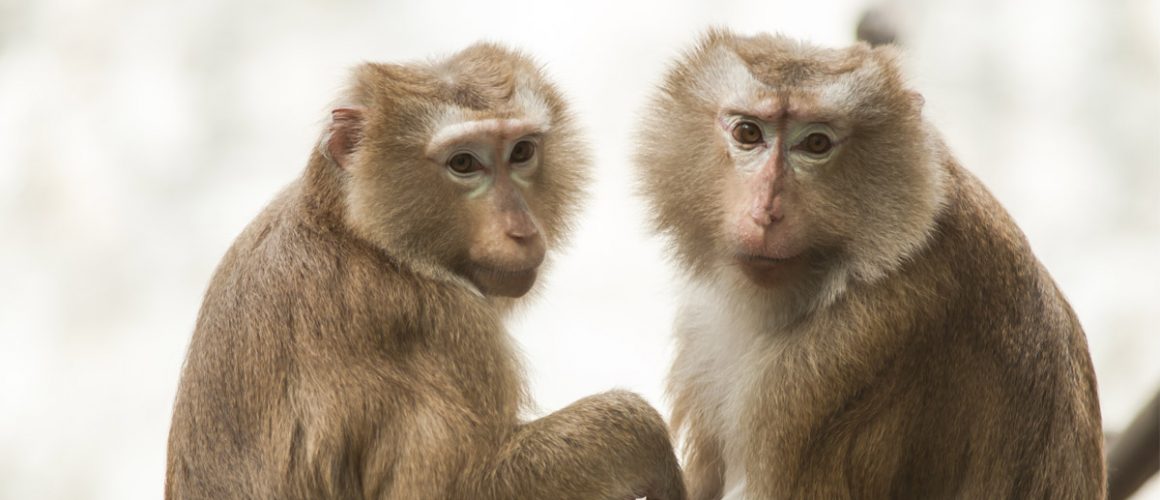In the face of growing calls for stricter laws to protect animals in Australian research, the claim is often made that such measures could drive scientists to relocate their studies to countries with looser regulations, further compromising animal welfare standards.
Let us examine this claim more closely.
Where do these claims come from?
A recent (2022) New South Wales government Inquiry into the Use of Primates and Other Animals in Research raised the subject of stricter animal welfare laws governing various animal tests and the use of primates in experiments. Some submissions to the Inquiry argued that a phase-out of the use of animals in research, or even just tightening regulations around animal research, could push research overseas where animal welfare laws may not be in place or adequately enforced.
One such written response to the Inquiry raising this argument was from Professor Wayne Hawthorne, Chair of the Western Sydney Local Health District, who expressed his concern in a follow-up letter to the Inquiry that some countries overseas have lower standards of animal welfare, particularly in relation to non-human primates, noting that in some instances there is no inspection of facilities or projects, no provision for appropriately legislated cage sizes or characteristics in which the animals are contained – elements of which are provided in Australian animal facilities.
“Of great concern, is if animal research, at any level, is stopped in NSW or Australia then it may well be that these projects will be shifted overseas where they will be undertaken in significantly less regulated or legislated jurisdictions, such as in Asia” Prof Hawthorne writes.
He indicated that due to increased legislation around the use of non-human primates in some other countries there has been a shift in where research is being undertaken especially as several Asian countries are now establishing huge biotech and animal research infrastructure.
It is unclear to which primate researchers Prof Hawthorne is referring when he talks of a shift of non-human primate research from some countries to others with lesser regulations.
However, it is known that in 2021 one primate researcher, Nikos Logothetis, moved labs when his brain experiments on macaques into visual perception at the Max Planck Institute for Biological Cyernetics in Tübingen, Germany came under public scrutiny. After his experiments were exposed Logothetis ended the experiments and packed up his lab and commenced preparation to resume monkey experiments at the new International Center for Primate Brain Research (ICPBR) in Shanghai away from public scrutiny.
Despite attitudes towards experimenting on non-human primates changing in the western world, China continues to race ahead to undertake even more primate experiments with hundreds of thousands used each year and 6,000 alone expected to be housed at ICPBR.
Prof Hawthorne is certainly not the only one to make the claim that animal welfare standards would be adversely impacted. Dr Justin Clancy, veterinarian and MP for the seat of Albury, NSW, contributing to the debate on the Animal Research Amendment (Right to Release) Bill 2022 in NSW Parliament on the 13th October also expressed his opinion that there could be “unintended consequences” (from processes that may be put in place in relation to animal experimentation) and that “we must exercise care because we run the risk that trials will move offshore, where there is less focus on welfare.” In early November and again in December AFSA asked Dr Clancy to elaborate further as to whether this has indeed taken place because of processes put in place in Australia, or whether it is a hypothetical concern. AFSA has not received a response.
Are Australian researchers moving overseas?
As to Australian scientific expertise, intellectual property and knowledge leaving Australia, the evidence indicates that Australian researchers has gone overseas but not because of Australia’s rules and regulations relating to the use of animals in research. Data compiled by industry and science professionals indicates that some researchers certainly have headed to more lucrative employment, and more adequately funded opportunities. For decades researchers in all areas of science including climate science and medical science have continuously bemoaned the lack of adequate funding.
According to the Australian Academy of Science, the costs of scientific research are mainly supported by businesses, governments and universities. The Australian Government supports science-based research and development by funding universities, research organisations or via competitive research grants such as those distributed through the Australian Research Council or the National Health and Medical Research Council (NHMRC) and that Australia’s spending on science-based R&D, as a percentage of GDP, has decreased over the past 10 years (although over the past three decades it has increased despite falling government support.)
But back to the cry that if animal laws are strictly regulated researchers will take simply outsource their research or move overseas. It appears to be a veiled threat at this stage. But why the threat? Why cite concern about the ethical standards and demands by advocates and legislators for a reduction in animal experimentation, especially when there is generally a global desire to transition away from animal research?
Surely one must question the ethics of a researcher who conducts animal research in a country where the ethical treatment of animals is not as robust as it should be, whether that be through relocation or contracting out of animal research.
This is not being forced upon researchers, but a choice. Indeed, there is a term in the scientific community for this type of behaviour. It is known as ‘ethical dumping`. The term refers to the situation where researchers from wealthy countries, with strict regulations, conduct experiments in locations in low and middle-income countries with weak legal frameworks and ethics compliance mechanisms.
For countries where animal welfare laws are absent or poorly administered, Australia should lobby for higher standards rather than obstruct attempts to tighten Australian regulations. If research quality in animal research is as high as claimed, and animal welfare directly correlates to the quality of research conducted, then surely Australian researchers would refuse to outsource to such countries in any case, if their stated concerns surrounding animal welfare and research integrity are genuine?
The ‘alternative’ reason for research going overseas
At the NSW Parliamentary Inquiry referred to above, the CEO of Sydney biotech company Codex Research, Ed Brackenreg, agreed Australia could be at risk of losing researchers, but he asserted it could happen for quite a different reason.
“We certainly are at risk of losing researchers who see the future of medical science research as being in human-relevant models if we don’t foster the development and uptake of alternatives to animal research in NSW”.

According to Brackenreg, as far as start-ups go, it is entirely possible that any good ideas born in Australia may be taken overseas to be developed in places that are more likely to have better infrastructure and financial opportunities supporting their development. “Losing promising start-ups to overseas jurisdictions has been an all-too-common occurrence in Australia” he said.
Animal research by its very nature is unethical
Veiled threats to move research overseas or contract out to countries where less priority is given to animal ethics is not an acceptable stance to take. Indeed, there is no guarantee that any one country is superior in its ethics to another. Abuses in animal laboratories occur in many countries, including those who argue that they have robust animal welfare laws such as the US and EU.
Sadly, Australia itself is not devoid of unethical practices in the animal laboratory. One must question whether frightening monkeys with toy snakes at Monash University or forcing rodents to inhale toxic substances at various research institutes around the country is considered ethical. The evidence to the NSW Inquiry provided by Lisa Craig implies that Australia is not leading on animal welfare for animals used in research, so perhaps Australia could learn from other jurisdictions with higher animal welfare regulations, rather than scientists attempt to avoid tight regulations.
Animal research by its very nature is unethical. No animal willingly gives consent to invasive procedures carried out upon it.
Therefore, threatening to go elsewhere is not the solution. There is a global need to transition away from animal research. However, Australia can start by reducing the use of animals in our own jurisdiction and communicating effectively why this is needed, which could potentially impact on other countries. If Australia and other leading biomedical research countries simply continue using animals because we feel the research may be conducted to a lower standard elsewhere, then nothing will change.
The solution lies in substantial dedicated funding for forward-thinking, human-relevant and intelligent non-animal methods of research. This would be a win for Australian medical research and a win for animals.
Please help us to ensure more funding for human-relevant non animal methods of research by taking action here.
More information about Australia’s involvement in primate research can be found here
